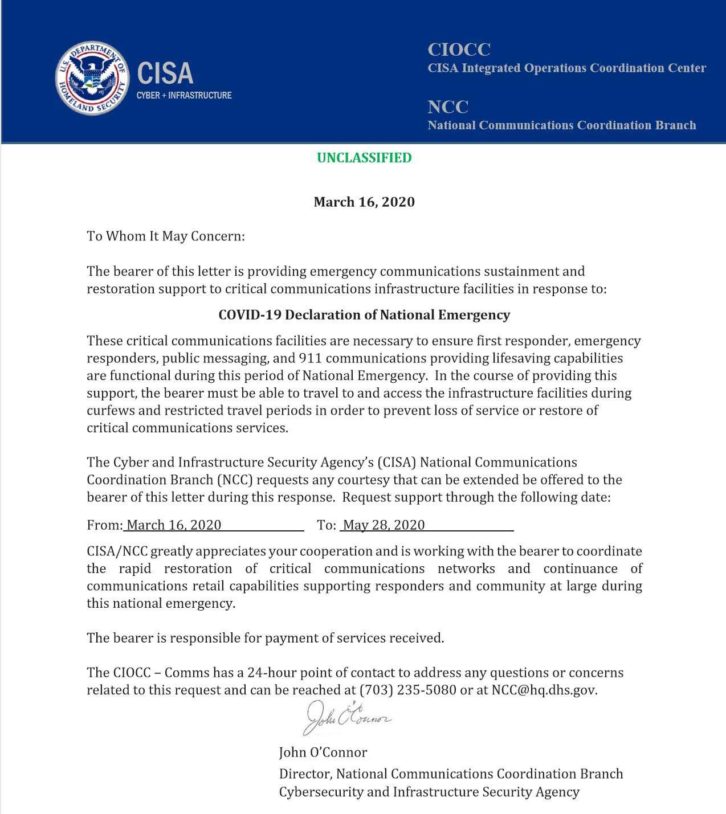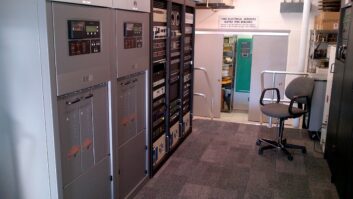 A U.S. federal agency is giving broadcasters special consideration to help assure continuity of operations during the coronavirus national emergency.
A U.S. federal agency is giving broadcasters special consideration to help assure continuity of operations during the coronavirus national emergency.
The National Communications Coordination Branch of the Cyber and Infrastructure Security Agency issued two letters in mid-March, letters intended to help broadcasters maintain access to their facilities. One specifically mentions the ability to obtain fuel, the other addresses access to facilities and travel freedoms.
The National Association of Broadcasters is recommending broadcasters keep the letters to show to law enforcement if curfews are put in place or fuel supplies interrupted for generators or other critical equipment.
CISA is part of the U.S. Department of Homeland Security. It listed eligible workers, including communications sector workers “who support radio, television and media service, including, but not limited to front-line news reporters, studio and technicians for newsgathering and reporting.”
In part the CISA letters state: “Critical communications facilities are necessary to ensure first responder, emergency responders, public messaging and 911 communications providing lifesaving capabilities are functional during this period of National Emergency.”
The bearer of the CISA letters “may travel and access the infrastructure facilities during curfews and restricted travel periods” in order to prevent loss of service or restore of critical communications services, according to the letter.
NAB says it has shared the CISA letters with its members. Copies can be found online in NAB’s Coronavirus Response Toolkit at www.nab.org. The letters are under the Operational and Editorial Resources tab. State broadcast associations have also been circulating them.
NAB noted, “CISA’s guidance is advisory in nature and not a federal directive or standard. In the end, final discretion whether to grant access to broadcast facilities and other locations rests with state and local emergency management authorities. Broadcasters are encouraged to coordinate with their state or local authorities regarding their need to access facilities and other locations in order to continue providing critical emergency information to their viewers and listeners.”
In addition to the declaration of a national emergency, some states have ordered non-essential workers to stay home during the coronavirus pandemic, and CISA makes it clear that “state, local, tribal and territorial governments are ultimately in charge of implementing and executing response activities under their jurisdiction.”
Federal law already defines broadcasters as “essential service providers” and allows such providers access to their places of operation in order to “respond to an emergency or major disaster.” Most industry observers believe that the provision allows essential broadcast station personnel access to their studios, transmitters, towers and other places of business for purposes of staying on the air. An NAB official Radio World that the association “believes that is a fair interpretation of the law.”
Also, some states have programs that designate “first informers” and “essential broadcaster” credentials to help assure broadcasters access to facilities and guarantee fuel deliveries to auxiliary site.
A senior NAB official says the current situation is “like nothing we’ve seen” and requires “preparation, planning and a great deal of flexibility” on behalf of broadcasters.
“Each station or community is likely to face different challenges depending on resources and how individual states, municipalities and authorities are responding to the pandemic. Broadcasters will need to take the necessary precautions and utilize all the tools in their tool chest to maintain operations,” the official said.







